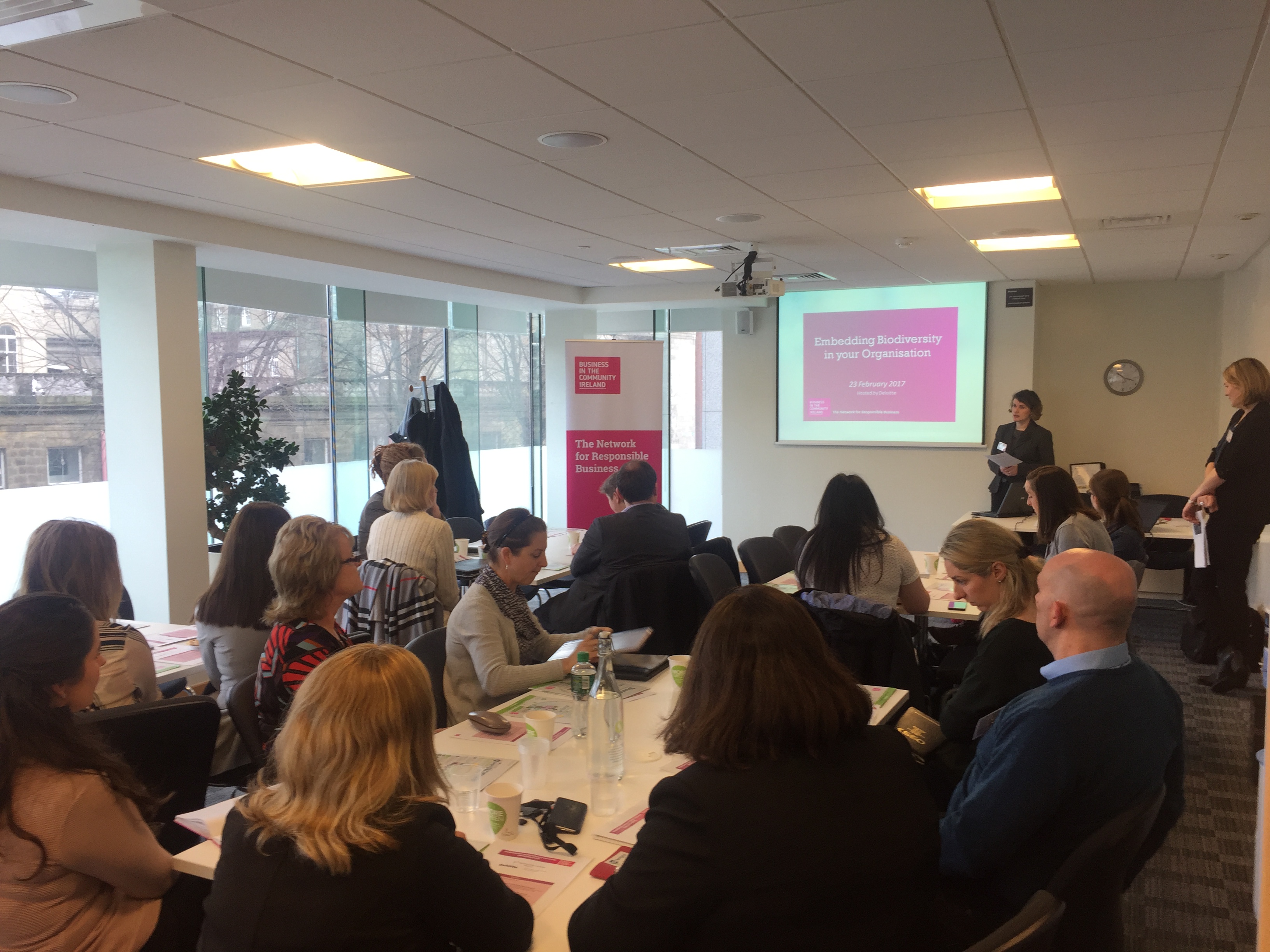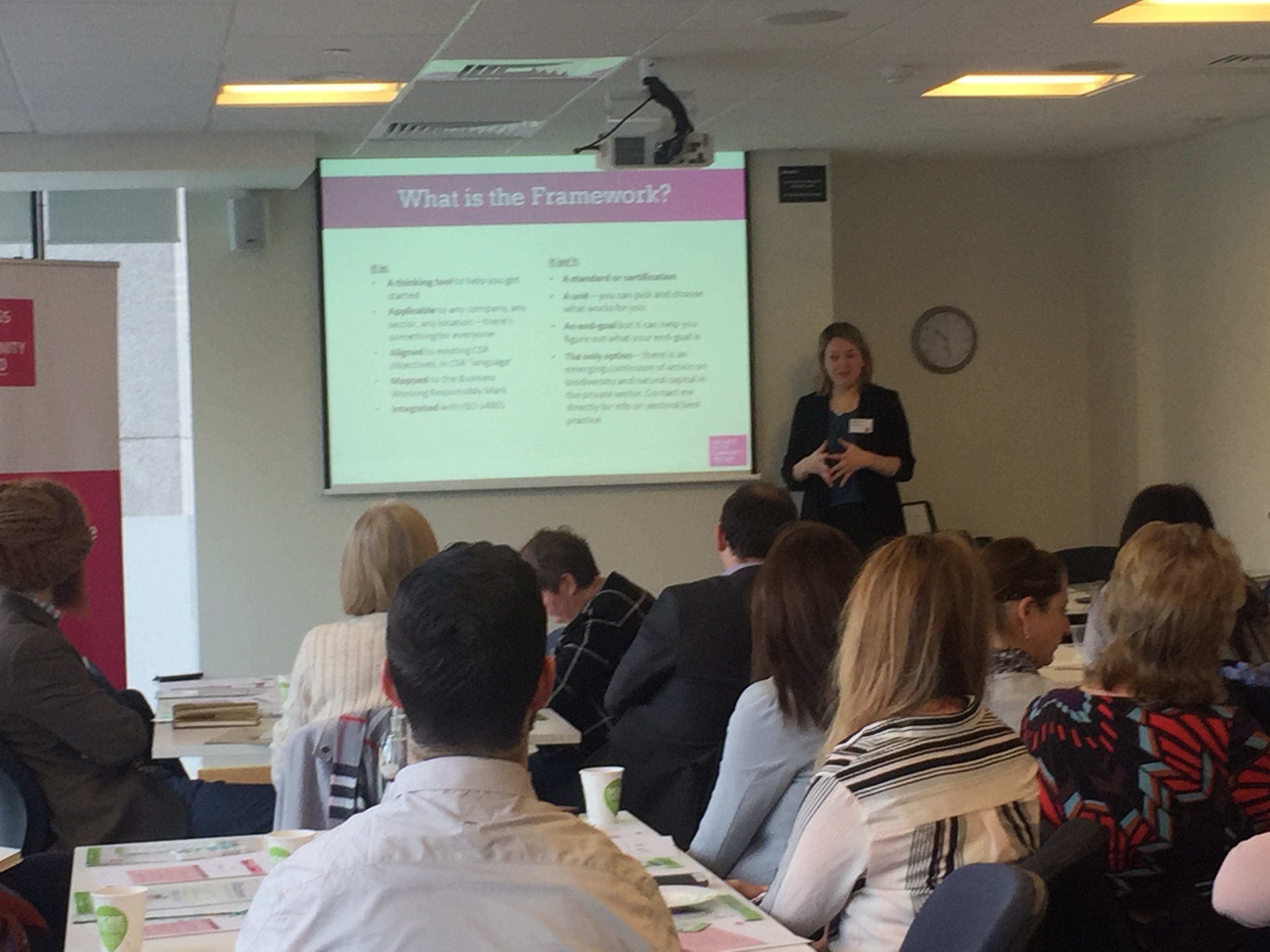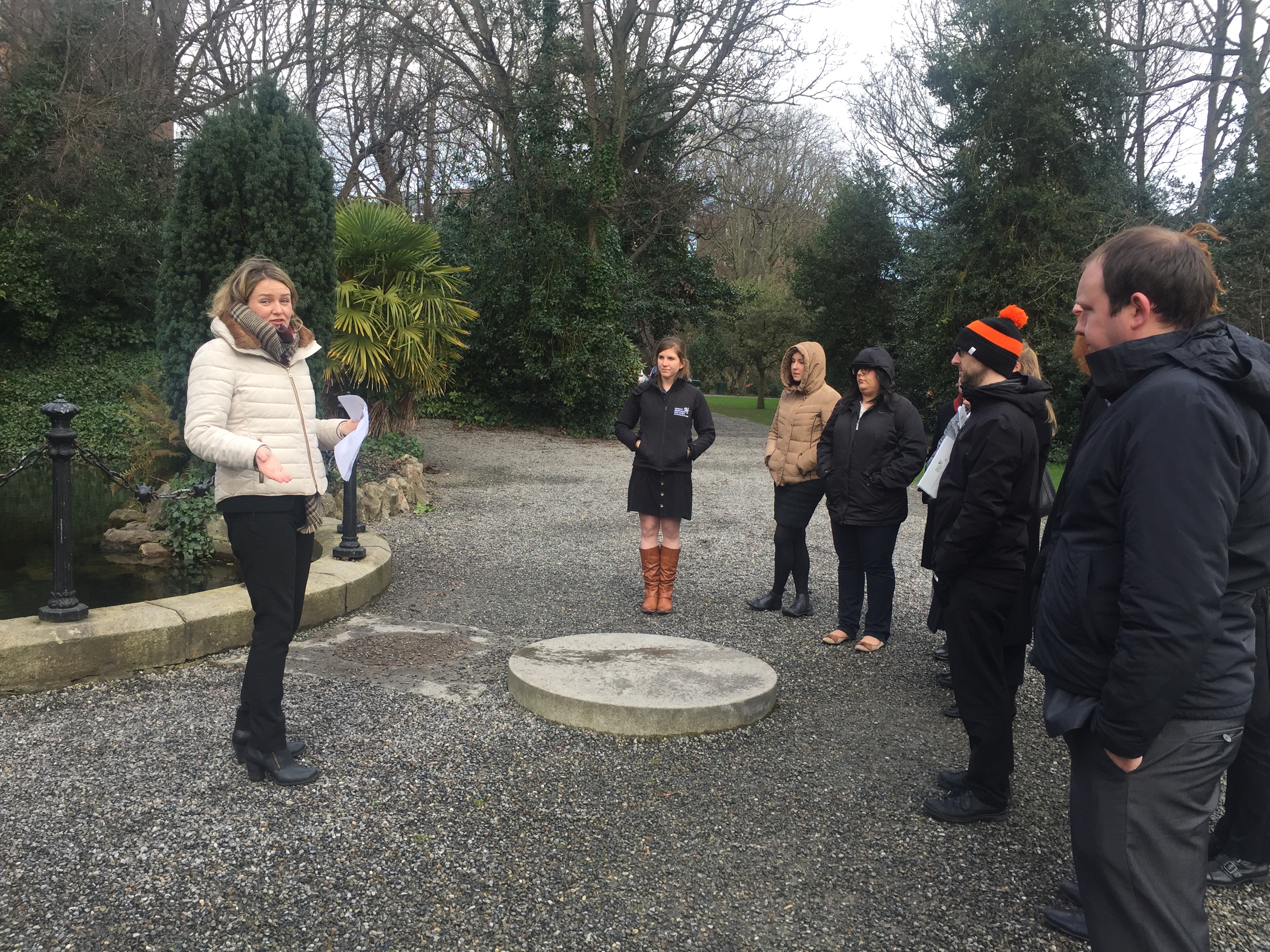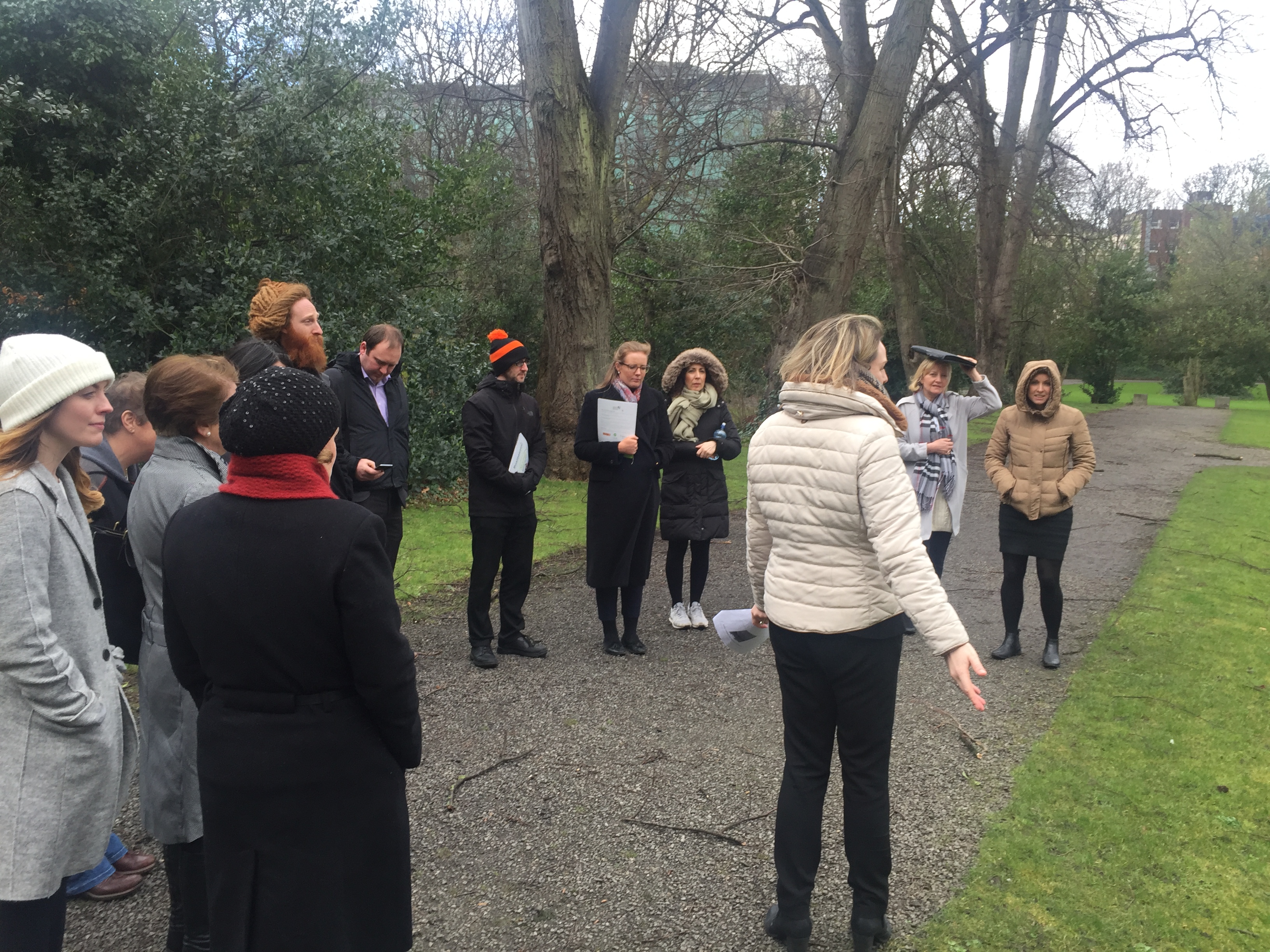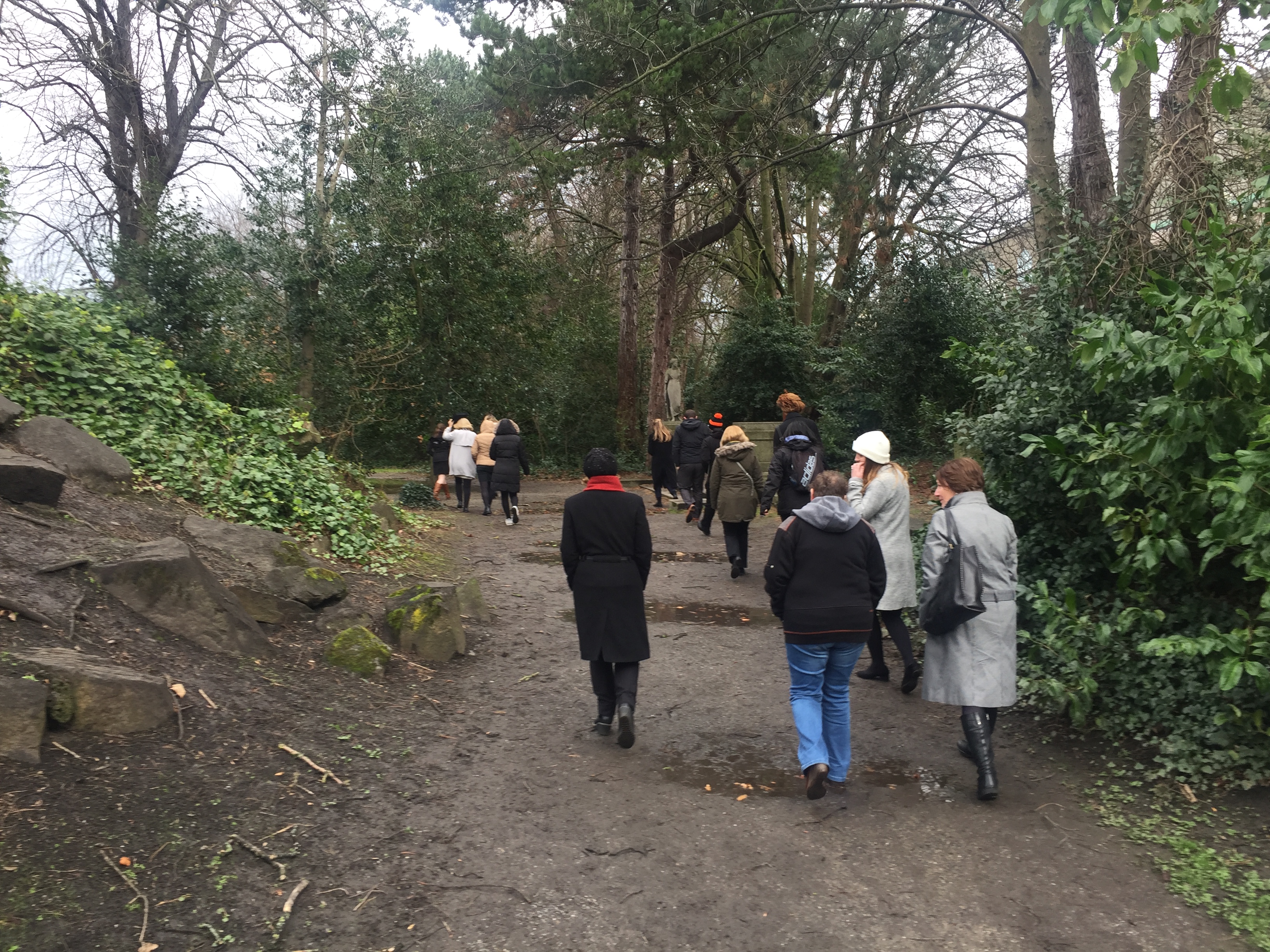Bee positive!
Member companies are taking action for pollinators.
Member companies attended Business in the Community’s third biodiversity workshop last week on the All-Ireland Pollinator Plan, hosted by Deloitte. We were joined by Erin-Jo Tiedeken from the National Biodiversity Data Centre, who walked us through all the ways businesses can help provide food and shelter for Ireland’s threatened pollinators.
BITCI helped to develop the All-Ireland Pollinator Plan’s Business Guidelines, which outline these actions in a short, high-level ‘How To’ guide that spells out simple things any organisation can do to make Ireland bee-friendly.
From changing the way we mow the grass, to keeping south-facing earth banks clear for solitary bees to nest in, to empowering colleagues to do citizen science, to working with community groups and schools in the local area to raise awareness and make an impact, there are ways for every business to get involved – whether they have lots of green space or not.
After the workshop, we had a nature walk in the Iveagh Gardens where we saw first hand the kinds of things we can do to improve outdoor spaces for pollinators. A queen bee emerging from hibernation right now needs to feed on 6,000 flowers every day if she’s to have enough energy to raise a healthy brood! At this time of year, letting dandelions flower on lawns and not cutting back flowering blackthorn in the hedgerows can have a really positive impact on bees and help to make sure they don’t go hungry.
We were inspired to hear of the many organisations that are already taking action: Deloitte is working with Grow It Yourself to explore pollinator-friendly gardening, SSE Airtricity has supported honeybees by working with beekeepers, AIB is continuing its ‘Bees on the Roof’ project, and Intel has planted a large wildflower meadow on its site in Kildare. We hope many more will follow suit and encourage our members to keep us up to date with their progress.
Niamh Ní Cholmain from Dublin City Council also joined us to talk about biodiversity in our capital city. She outlined the green and blue infrastructure that connects the city to the hinterland, shared fascinating facts on some of the most unique species that call Dublin home, and outlined a number of volunteering and citizen science activities that would benefit from business involvement. Her presentation, along with all the others from the workshop, is available now in the Members Area of the website.
If you’re interested in learning more about how to support pollinators, or wondering what you can do to enhance biodiversity more generally on your site or in your local area, here are some next steps:
- Check out the All-Ireland Pollinator Plan’s Business Guidelines
- Contact your account manager to arrange a one-on-one biodiversity consultation
Tags: Biodiversity
